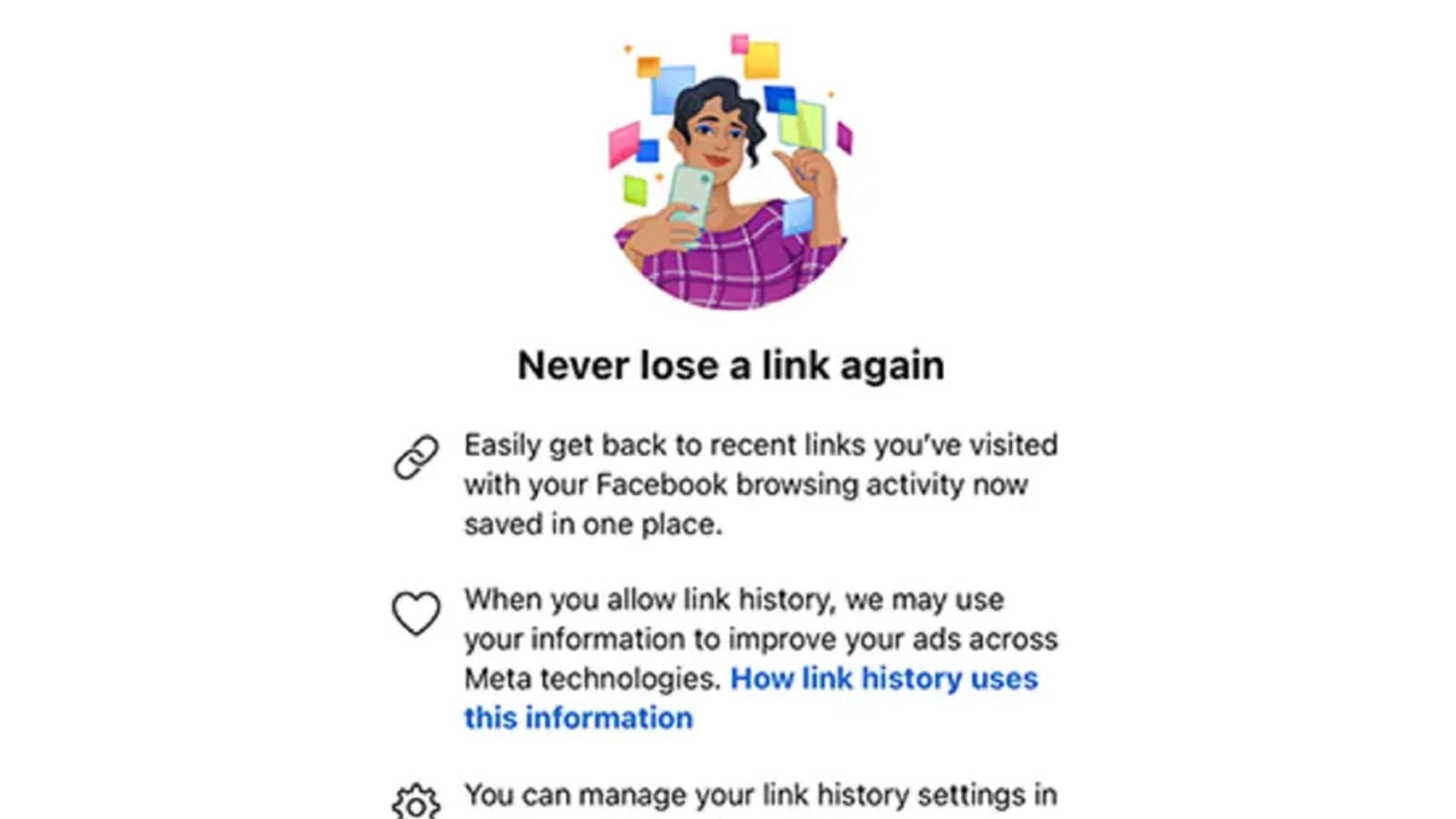Facebook introduces Link History for data targeting
Facebook this month has introduced a new feature called "Link History" that tracks the websites users visit on the Facebook mobile browser, reported Search Engine Land. The feature is currently being rolled out globally and is available for both Android and iOS devices.

Facebook this month has introduced a new feature called "Link History" that tracks the websites users visit on the Facebook mobile browser, reported Search Engine Land. The feature is currently being rolled out globally and is available for both Android and iOS devices.
Link History is turned on by default, but users have the option to turn it off. When Link History is on, Facebook will collect data about the websites users visit, including the URL, date, time, and device information. This data will be used to improve the ad targeting on Facebook and other Meta-owned platforms.
Users concerned about privacy can turn Link History off by following these steps:
- Open the Facebook app
- Tap on any link within the app
- This will launch Facebook's Mobile Browser
- Click on the three dots located in the bottom right corner, then select Browser settings.
- To enable link history, toggle the switch next to “Allow Link History”, and confirm by tapping “Allow”.
- To disable link history, toggle the switch next to “Allow Link History”, and confirm by tapping “Don't Allow”.
According to Meta, turning off Link History will not remove all of the data that Facebook has collected about website visits. Facebook may still retain some of this data for up to 90 days for troubleshooting purposes.
Link History is a tool that can help marketers to reach their target audience more effectively.
Facebook's Mobile Browser
Facebook's Mobile Browser is an in-app browser that allows users to access websites without leaving the Facebook app. It is available on both iOS and Android devices.
According to data from Mixpanel, Facebook's Mobile Browser accounted for 8.82% of mobile browser market share in the United States in 2018. This is a significant number, but it is still behind Safari (58.06%) and Chrome (32.48%).
In terms of iOS and Android specifically, Facebook's Mobile Browser had a slightly higher share on iOS (9.34%) than on Android (8.23%).
The popularity of Facebook's Mobile Browser is likely due to its integration with the Facebook app. When users click on a link in the Facebook app, it will automatically open in the Mobile Browser. This makes it convenient for users to stay within the Facebook ecosystem, and it also gives Facebook more data about its users' browsing habits.

